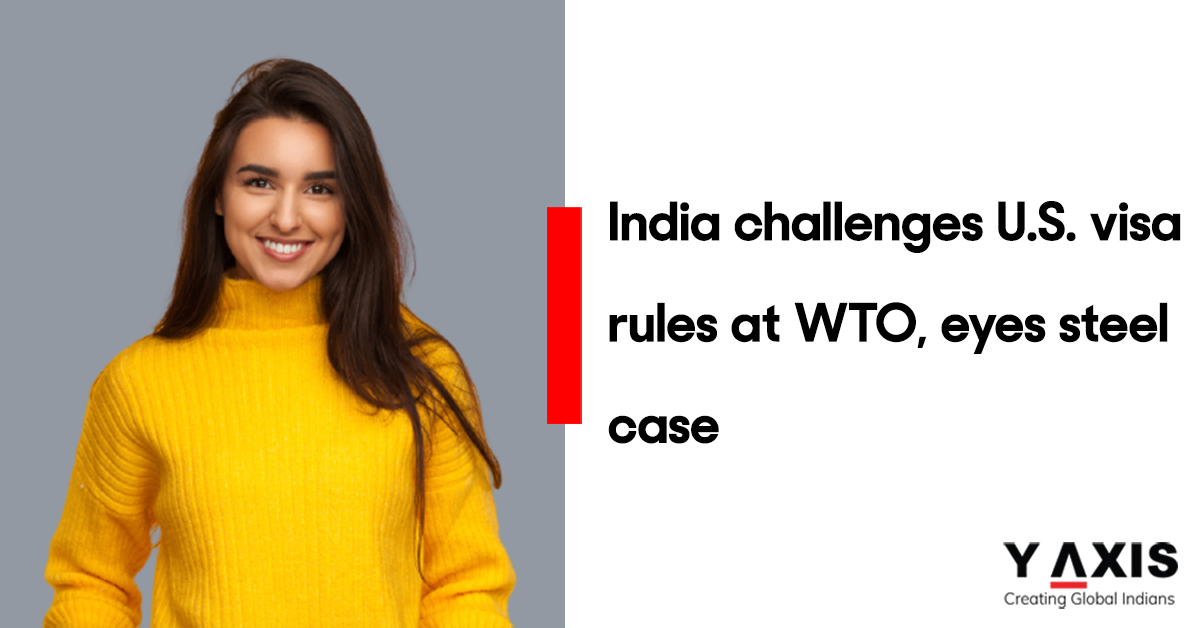Posted on April 11 2012
India challenges U.S. visa rules at WTO, eyes steel case
By , Editor
Updated April 10 2023
India is challenging a U.S. law that raised visa fees for high-skilled foreign workers as a violation of global trade commitments and is planning another case against U.S. import duties on steel pipe, Indian officials said on Tuesday in the latest sign of prickly trade ties between the two allies.
The complaint at the World Trade Organization against the 2010 U.S. visa fee increase, which India protested at the time, is at the level of "consultations" between the two parties, the last stage before entering a full-fledged legal dispute.
"India is taking up consultations on this issue and hopes to solve it amicably," an India trade ministry official said, asking not to be named because of the sensitivity of the matter.
Trade Minister Anand Sharma raised the visa issue during a meeting with U.S. Commerce Secretary John Bryson, who visited India late March, the official added.
India's complaint is about a U.S. law from 2010 that almost doubled visa fees for skilled workers to $4,500 per applicant. The bill's sponsor, Senator Charles Schumer, a Democrat from New York, said at the time that the move was aimed at a small group of companies exploiting U.S. law to import workers from abroad.
India's economy has benefited greatly from information technology firms doing offshore work for U.S. companies, but such outsourcing has become an issue in the U.S. presidential campaign, with President Barack Obama vowing to woo jobs home from overseas.
Nkenge Harmon, a spokeswoman for the U.S. Trade Representative's office, said the United States had not yet received a formal request for consultations from India and "therefore is not in a position to comment."
"However, the United States takes its WTO obligations seriously," she added.
Once a country formally request consultations, WTO rules require it to wait 60 days before asking a dispute settlement panel be formed to hear its complaint.
"I think the government of India is right that this is a barrier to trade," Vineet Nayyar, CEO of large Indian software services exporter Tech Mahindra, told Reuters.
A senior Indian trade ministry official, who also declined to be identified because of the sensitive nature of the issue, said India waited so long to bring its complaint because "there was always the belief, constantly held out (by U.S. officials), that this would be handled somehow."
However, the way the Obama administration has implemented the provision has made it harder for Indian technology workers to obtain visas, not easier, he said.
" Now what has happened over the years is, notwithstanding all the assurances that have been held out, the rejection rates (for visas) have steadily climbed," the senior official added. "Please explain to me why in 2007/8 the rejection rate was 1 percent and today it is 50 percent. If you can give me a good explanation for that, then fine."
Commercial ties between India and the United States flourished after India's economic liberalisation in 1991, but in recent years each side has accused the other of erecting unfair barriers to trade and investment growth.
Last month, the United States began the same type of action at the WTO to open India's market for poultry meat and eggs, saying an Indian ban on U.S. imports intended to stop the spread of bird flu was not based on sound science.
India is also preparing to challenge a U.S. import duty on steel pipes, the senior official told Reuters.
The United States Commerce Department in March set a preliminary import duty of nearly 286 percent on a certain type of steel pipe from India to offset government subsidies. A final decision on duty rates is expected by August.
"They are in absolute and total breach of the WTO," the official said, referring to U.S. Commerce Department action. "There is no subsidy involved."
The official said Washington has imposed the duty because a portion of the iron ore used to produce the Indian steel pipes is provided by state-run miner NMDC (NMDC.NS), the country's largest.
Washington concluded that "because NMDC is a public sector undertaking, it is selling this iron ore ... for a song, and therefore implicitly subsidising a private-sector enterprise. This is the allegation," the Indian official said.
The allegation is baseless as NMDC is one of many producers of iron ore in the country, the official said.
Gilbert Kaplan, a lawyer at Spalding & King who represents U.S. industry in the case, said the Commerce Department was well within its rights to set the high duty on Indian imports.
Both U.S. law and WTO rules allow the Commerce Department to set duties based on based on "facts available" when foreign companies and governments do not respond to requests for information, Kaplan said.
The Commerce Department found that the government of India failed to provide information on a number of subsidy programs that it was asked about, he said.
"I think it's unjustified (for the Indian government) to go to the WTO. They certainly should not try by this unusual move to overcome their failure to cooperate in the case," Kaplan said.
For more news and updates, assistance with your visa needs or for a Free Assessment of your profile for Immigration or Work Visa’s just visit www.y-axis.com
Tags:
fee increase
U.S. visa rules
WTO
Share
Options for you by Y-Axis
Get it on your mobile
Get News alerts
Contact Y-Axis


